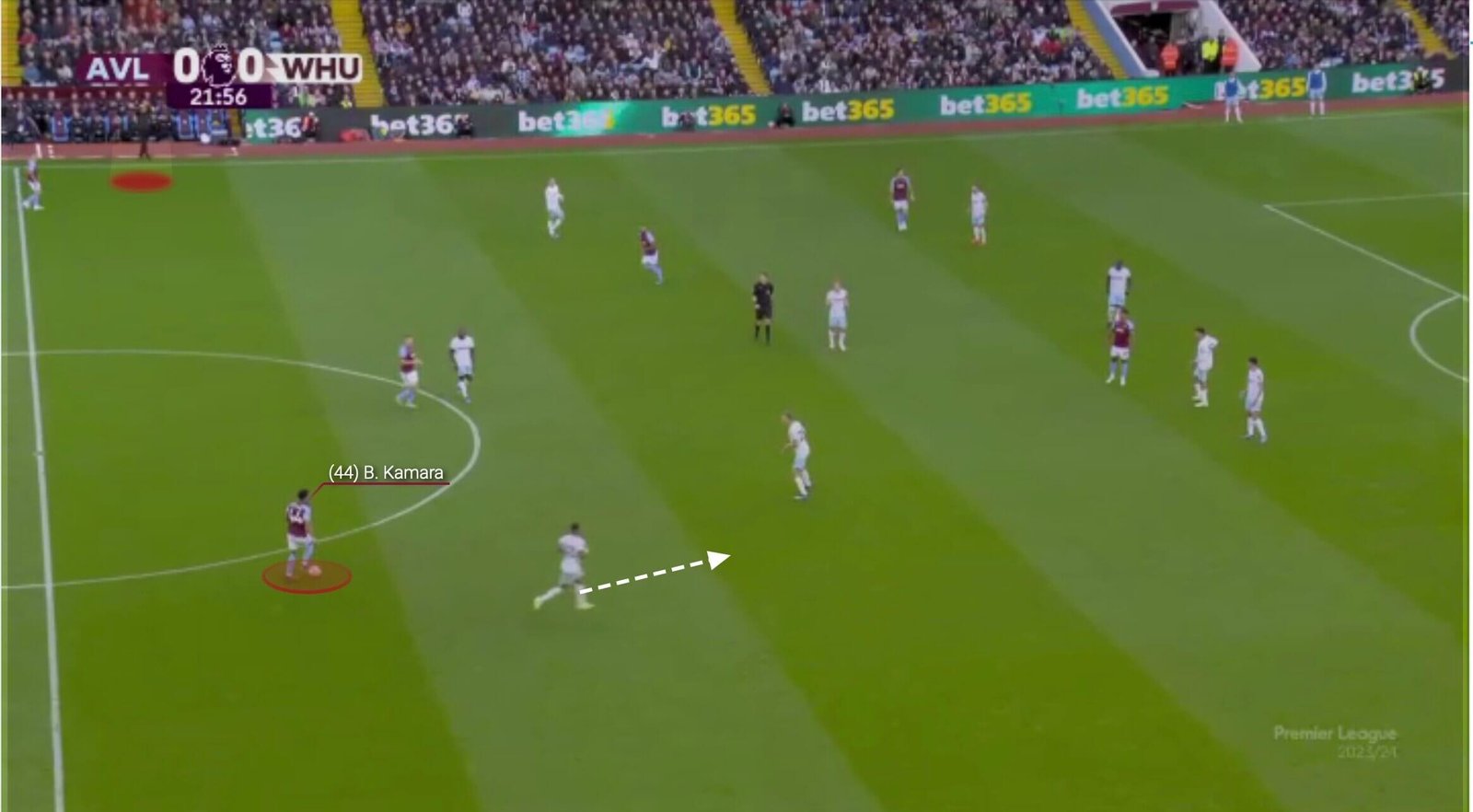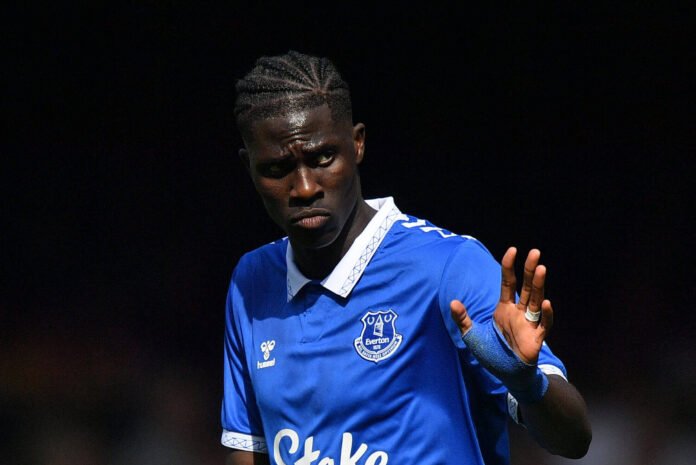Aston Villa and Unai Emery wanted the newfound riches that come with Champions League football to enable them to buy premium talent.
One area Villa identified as they seek to purchase players at that level was central midfield. The departure of Douglas Luiz, sold to Juventus to satisfy profitability and sustainability rules (PSR), accentuated Emery’s desire to seek additions in that position.
This was, in part, due to how integral Villa’s midfield pivot is within Emery’s broader style, oscillating in system depending on the game state, in or out of possession and depending on where the ball is on the pitch. The overarching formation tends to be a 4-2-2-2, however, with a ‘box’ midfield, split strikers and the full-backs providing width.
It means the holding midfielders have a multi-faceted remit, tasked with covering the width of the pitch to guard against transitions and, with the ball, break lines by playing into the two attacking midfielders — often the most congested and rushed area of the pitch.
All teams are vulnerable against attacks with pace and purpose, especially with a midfield pivot as isolated as Villa’s. Douglas Luiz held more all-encompassing responsibilities than any other player, with Emery demanding he drive up his goal contributions by making more frequent and effective runs into the final third.
The burden on Douglas Luiz increased without Boubacar Kamara alongside him as the defensive anchor. Emery, as is his way, was fixated on his role and regularly (and animatedly) communicated with the Brazilian from the touchline.
A key cornerstone of Emery’s football and something invariably repeated in press conferences is the need for his midfielders to be “intelligent”. This means being ready to counter-press while remaining courageous in possession in precarious areas of the pitch and under pressure from various angles.
In short, Emery needs his deep-lying midfielders to have the capacity to be both a water carrier and a fine diner, able to perform the ugly aspects of the game while offering metronomic qualities with the ball.
Below is an example of the game intelligence Emery expects. Here against West Ham United, Villa are on transition but lack options ahead of the ball. Kamara, who has just received possession, opts to take additional touches, slowing down the attack.
While it elicits groans from Villa supporters, Emery applauds.

“My idea is to build a way tactically,” Emery told The Athletic last season. “I want us to impose our positioning on the pitch with the midfielders keeping ball possession as long as possible. It is too difficult to explain entirely.”
To buy a player with such a well-drilled and varied toolkit comes at a premium, physically and financially. It is why Villa made concerted efforts to strengthen the depth in the position, signing Enzo Barrenechea and Ross Barkley this summer. But the desire throughout was to recruit a first-choice starter who could take Villa to the next level.
To that end, Everton midfielder Amadou Onana is finalising an agreement to join Villa for what could be a club-record fee of £50million ($65m). Emery admired Conor Gallagher immensely, but Onana offers a higher technical ceiling and the England midfielder still holds a large emotional attachment to his boyhood club Chelsea, making a move difficult.
Close to 6ft 4in (195cm), Onana carries discernible physical gifts; a tall frame that allows a rangy, athletic stride that can cover ground quickly and, even at 22, he has shown a tactical astuteness to complement his instincts.
More broadly, Onana has shown an impressive pattern of taking most things in his stride off the pitch. Villa will be his eighth club (although he did not make a first-team debut for four of those), with England the fourth country he has played in.
Born in Dakar to a Senegalese mother and a Cameroonian father, Onana left for Belgium aged 11. Integrating quickly into new environments, cultures and languages has been a theme of his life. He speaks English, Wolof, French, Dutch and German.
Melissa, his sister and also now his agent, was undergoing chemotherapy when the pair made the eight-hour train journey to Hoffenheim in 2017. It is well told but their story has long been of bravery and adaptation.
From midfielders in Europe’s top-five leagues last season, Onana ranked in the top eight per cent for tackles made per 90 minutes (3.06) and top 13 per cent for ball recoveries (6.89). They are numbers that underline why he matches Emery’s vision for what a combative central midfielder should be.
Belgium were tactically chaotic for parts of Euro 2024 but manager Domenico Tedesco entrusted Onana to be the lone central midfielder in their last-16 game against France, anchoring Kevin De Bruyne — and keeping Youri Tielemans, a future team-mate with Villa, on the sidelines.

Amadou Onana has 17 caps for Belgium (Rico Brouwer/Soccrates/Getty Images)
Going forward, Onana has a propensity to crash the box, suggesting he is more suitable to replicating Douglas Luiz’s role as the all-round midfielder than Kamara, who is more defensively minded and inclined to hold his position. After arriving from Lille in 2022, Onana was used by then-Everton manager Frank Lampard in a similar mould to himself as a player — timing late runs into the penalty area and getting on the end of crosses from out wide.
Onana’s height, however, meant he tended to make curved movements towards the back post, where he would have the aerial advantage over opposition full-backs.
Last season, Onana ranked in the top six per cent of midfielders for aerial duels won, indicating scope that he could, if moulded correctly, become a growing threat in the opposition box and increase his goal tally (he scored three league goals across two years at Everton).
Villa desired a deluxe talent and Onana has a considerable bank of experience and a ceiling that will only be elevated under Emery’s coaching. It is a sign of what the fruits of Champions League football can buy.
(Top photo: Dave Howarth – CameraSport via Getty Images)
Read the full article here


